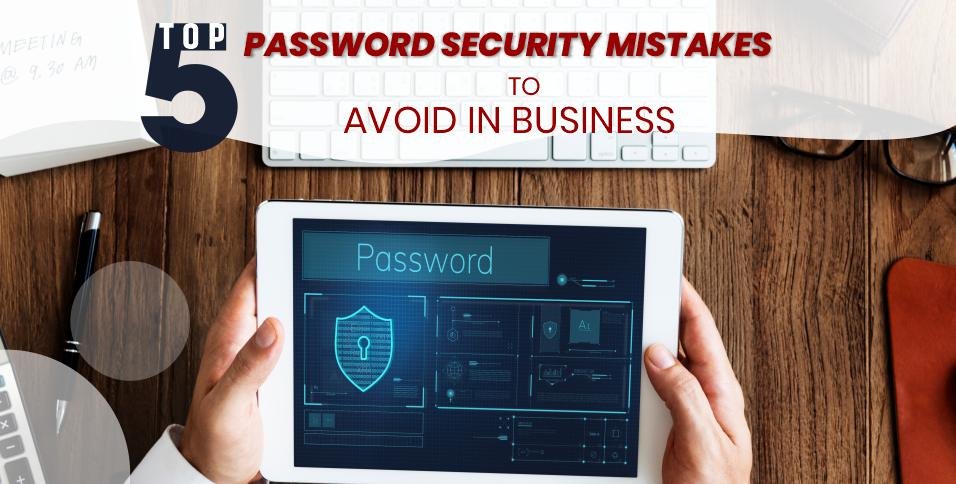Almost every company depends on technology.
With so many cases of data breaches, cybersecurity has come into the spotlight. It’s easy to think that these incidents will never happen to you. Yet, in today’s digital world, it could happen to anyone at any time.
Creating strong passwords is an efficient step toward better cybersecurity for your company. People often make the mistake of thinking that password security is only about coming up with a complicated password. While it’s important to choose a long and complicated password, there are other things you need to think about when creating one. So read on for our top 5 password security tips and advice to avoid falling victim to cyber attacks
How do passwords get compromised?
When it comes to hacking passwords, there are several ways that hackers can do it. They can use social engineering tactics to trick you into giving them access. Or they can hack into your computer and steal your information from there.
Did you know that there’s even password-cracking software and apps? This video explains in greater detail how someone can steal your passwords.
Considering all these threats, you should avoid the most common password mistakes to protect your business. Here they are:
Using the same password for many accounts
If you use the same password for every site you visit, there’s a good chance that someone will crack it. Smart hackers know that many individuals make the mistake of using the same password everywhere. So if they crack one of your passwords, they’ll begin to use that login information as much as they can.
Keeping passwords in insecure locations on your computer
To keep track of all of your passwords, you or your staff may create a document on your computer and share it with team members via email. This is a huge mistake. If malware infiltrates the computer, hackers will search the whole hard drive until they locate what they’re searching for.
To store all your passwords in a secure place, you should start using a professional password manager.
A password manager is a software tool that allows users to store, organize, and manage their passwords. When you use a password manager, you don’t have to remember all of your passwords for different websites and apps. Instead, you can store all of your passwords in one place, which makes it easier for you to access your information when needed. You can also see which sites were accessed with which password.
There are many different types of password managers available today. Some will even allow you to sync your passwords across many devices, including phones and computers. It’s important to choose the right type of password manager for your needs.
Using passwords that are too simple
If a password only contains two of the four sorts of characters, it’s too basic. While password length and structure were once thought to be the only two indicators of a good password, this is no longer the case. You should try to make each password as unique as possible.
To create a strong password, try combining the following characters:
- Lowercase alphabetic characters;
- Uppercase Letters;
- Numbers;
- Symbols.
This report lists the most common passwords that were leaked to the dark web. Make sure you never use these types of passwords!
Using personal information for a password
Never use the names of family members, favorite celebrities, pets, friends, or even your own name as a password. It’s best to avoid using even something as straightforward as a college nickname.
Remember that adding a random number to your simple password won’t help either. This is a typical mistake, and password-guessing software will be very likely to guess your password eventually.
Failing to use two-step authentication
Using a strong password is definitely not enough for your business’s protection. You should also start using two-step authentication to add an extra degree of security to sensitive accounts.
When logging into your accounts, you will receive a unique passcode on your phone or email. This means that even if a hacker obtains your primary password, they will be unable to access your account since it is still protected by the security code.
Password security is something that every company should prioritize. If you don’t, your company might suffer financial loss from cyber crimes. Yet, password protection does not have to be difficult; by avoiding the most common mistakes we have discussed, you can ensure that you are far ahead of your competitors.















